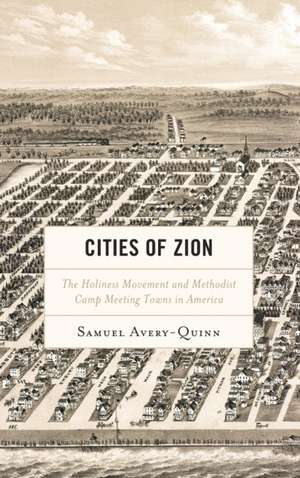Cities of Zion: Religion in American History
Autor Samuel Avery-Quinnen Limba Engleză Hardback – 13 oct 2019
Preț: 787.95 lei
Preț vechi: 1079.38 lei
-27% Nou
Puncte Express: 1182
Preț estimativ în valută:
150.78€ • 155.55$ • 125.82£
150.78€ • 155.55$ • 125.82£
Carte tipărită la comandă
Livrare economică 26 martie-09 aprilie
Preluare comenzi: 021 569.72.76
Specificații
ISBN-13: 9781498576543
ISBN-10: 1498576540
Pagini: 358
Dimensiuni: 152 x 229 x 21 mm
Greutate: 0.62 kg
Editura: Rowman & Littlefield
Seria Religion in American History
ISBN-10: 1498576540
Pagini: 358
Dimensiuni: 152 x 229 x 21 mm
Greutate: 0.62 kg
Editura: Rowman & Littlefield
Seria Religion in American History
Notă biografică
By Samuel Avery-Quinn
Descriere
This study examines the transformation of American Methodist camp meeting revivalism from the Gilded Age through the twenty-first century. It analyzes middle-class Protestants as they struggled with economic and social change, industrialization, moral leisure, theological controversies, and radically changing city life and landscape.






